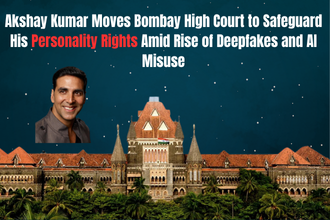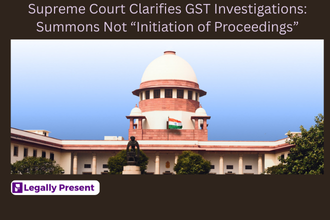Mumbai, October 15, 2025:
In a significant move highlighting growing concerns over digital impersonation and AI-generated misinformation, Bollywood actor Akshay Kumar has approached the Bombay High Court seeking protection of his personality rights. The plea comes amid a surge of deepfake videos, fake endorsements, and AI-cloned content allegedly misusing his name, image, and voice.
The case, titled Akshay Hari Om Bhatia v. Ashok Kumar, was heard by Justice Arif Doctor, who has reserved the matter for judgment after detailed submissions from the actor’s legal team.
The Case: Protecting Celebrity Identity in the Age of AI
Akshay Kumar, one of India’s most popular and bankable film stars, alleged that numerous online platforms and individuals have been circulating manipulated videos, fake news articles, and AI-generated content falsely portraying him in controversial contexts.
Represented by Senior Advocate Birendra Saraf, Kumar argued that such acts amount to a violation of his personality and publicity rights, which include the exclusive right to control the commercial and reputational use of his identity.
Saraf told the Court that the proliferation of deepfake content had caused serious damage to Kumar’s image and credibility, while also posing risks to public order and individual safety.
“This content has very serious consequences. It is not only a threat to him and his family but to the public at large,” Saraf submitted, warning that manipulated clips involving a public figure of Akshay Kumar’s stature could spark real-world reactions before any official clarification is issued.
Deepfake Incidents: Fabricated Films, Offensive Remarks and Fake Endorsements
Kumar’s petition detailed several disturbing examples of online impersonation. One of the most viral instances was a fake movie trailer showing the actor as Uttar Pradesh Chief Minister Yogi Adityanath, a role he never played. The video, which garnered nearly two million views, was later removed after widespread outrage and protests.
In another incident, a deepfake video depicted the actor making alleged remarks about Rishi Valmiki, leading to public demonstrations across parts of northern India. The video used advanced AI face-swapping and voice-cloning tools to perfectly sync Kumar’s face, tone, and lip movements, creating the illusion of authenticity.
“These were not mere memes,” Saraf emphasized. “They were digitally engineered to look real and were designed to mislead the public.”
AI Cloning and Voice Misuse: The New Frontier of Celebrity Exploitation
The petition also pointed to the alarming rise of AI voice cloning tools that replicate celebrities’ tones and speech patterns. One such platform reportedly features an ‘AI Akshay Kumar V2 Voice’ that can generate speech mimicking the actor’s style when users type any text.
Such technology, the petition warns, could be misused to create fake brand endorsements, obscene dialogues, or political statements—all carrying the actor’s likeness.
Beyond videos, the actor’s team identified numerous fake blogs, social media handles, and online stores selling digital stickers, merchandise, and endorsements under Kumar’s name without authorization. Some of this material was traced to the dark web, making it extremely difficult to identify the perpetrators.
Legal Relief Sought: Targeting Infringement, Not Platforms
Through his plea, Kumar has sought injunctions against both known and unknown defendants to prevent them from creating, hosting, or distributing content that violates his personality rights.
Significantly, his legal team clarified that they are not seeking blanket bans on entire websites or social media platforms, but only targeted action against specific URLs, pages, or links containing infringing content.
“We have restricted the prayer to obtaining the identities of domain account holders,” Saraf told the Court, adding that the focus is on accountability and traceability rather than censorship.
The petition also requests directions to domain registrars, social media intermediaries, and online platforms to take down deepfake material and disclose the identities and contact details of those responsible for uploading or promoting such content.
Court Proceedings and Observations
After hearing extensive arguments, Justice Arif Doctor took the submissions on record and permitted Saraf to file a revised note, clarifying that the actor’s legal name is Akshay Hari Om Bhatia—while he is popularly known by his stage name, Akshay Kumar.
The revised submission will also incorporate undertakings from the actor already filed in the interim application, ensuring procedural completeness.
Kumar’s legal team from Parinam Law Associates includes advocates Janay Jain, Monisha Mane Bhangale, Bijal Vora, and Chandragupta Patil, assisting Senior Counsel Saraf.
The matter now awaits the Court’s final order.
Personality Rights and Deepfake Law: A Legal Grey Zone in India
Akshay Kumar’s case underscores the urgent need for legal clarity around personality rights in India — an area that remains largely governed by judicial precedent rather than statutory law.
Personality rights protect an individual’s name, image, likeness, and voice from unauthorized commercial or reputational exploitation. Courts in India, including the Delhi High Court and Madras High Court, have previously upheld such rights for public figures like actors and sportspersons under the broader umbrella of privacy and intellectual property law.
However, with the rise of deepfake and AI-generated media, enforcement has become far more complex. Deepfakes — hyper-realistic but fabricated audio or video clips — blur the line between truth and fiction, making it easy for malicious actors to spread misinformation or defame individuals without accountability.
Currently, India lacks a specific legal framework to regulate deepfakes, though existing provisions under the Information Technology Act, 2000, and Copyright Act, 1957, provide limited remedies.
The Broader Impact: Digital Ethics and Responsibility
Kumar’s lawsuit is not only about protecting celebrity reputation but also about highlighting the dangers of unregulated AI technology. Deepfake tools, while innovative, can be easily weaponized to spread fake news, promote scams, or incite public unrest.
The case has reignited calls for comprehensive legislation to combat AI-enabled identity theft and misinformation. Legal experts suggest that India needs a specific statute on personality rights, coupled with mandatory verification frameworks for AI and content-generation tools.
“Public figures are soft targets, but the threat extends to everyone,” said a Mumbai-based IP lawyer. “Without accountability for creators and platforms, deepfakes could undermine public trust and even democracy.”
What Lies Ahead
The Bombay High Court’s decision in this matter will likely set a precedent for AI-related personality rights litigation in India. If the Court grants Akshay Kumar’s plea, it could empower other celebrities — and ordinary citizens — to take proactive legal measures against deepfake creators and impersonators.
It may also compel tech platforms, domain registrars, and social media companies to enhance their content moderation policies and develop more effective AI detection systems.
For Akshay Kumar, who has built a three-decade-long career on credibility and discipline, the case marks a firm stand against digital exploitation and misinformation.
Also Read
Supreme Court Allows Sale and Bursting of Green Firecrackers in Delhi-NCR During Diwali 2025



